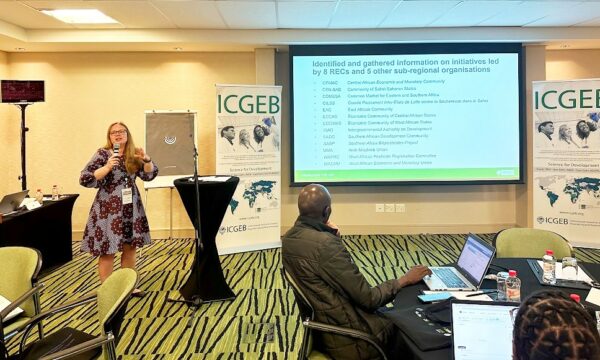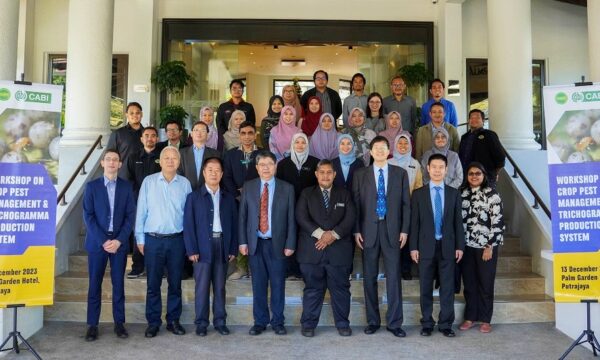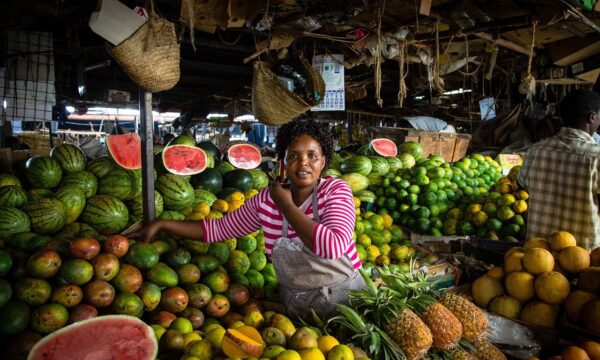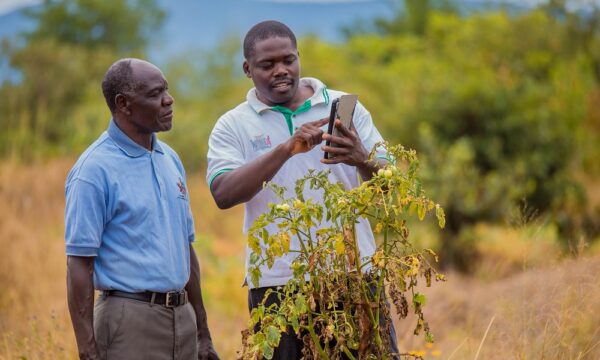If humanity is to continue to avert disaster and the Malthusian nightmare as growing populations exert ever increasing pressures on scarce earth resources, then we need some new solutions to old problems in agriculture, and we need to use some of the old solutions a lot better. In particular we need to recognise that we can’t just go on indefinitely hoping to produce more food, we also need to look after what we’ve produced and reduce losses and waste.
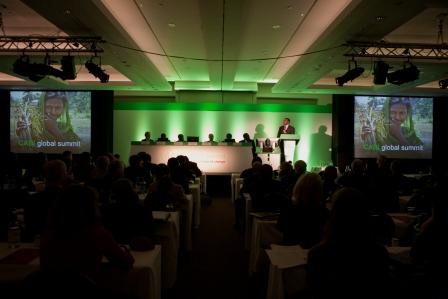 The CABI Global Summit, being held in London today brought together some of the world’s experts on the issue of Food Security. In the first open session they directed their discussion to thoughts on how we might hope to achieve the first and potentially the most intractable Millennium Development Goal, to ‘Eradicate Extreme Poverty and Hunger’.
The CABI Global Summit, being held in London today brought together some of the world’s experts on the issue of Food Security. In the first open session they directed their discussion to thoughts on how we might hope to achieve the first and potentially the most intractable Millennium Development Goal, to ‘Eradicate Extreme Poverty and Hunger’.
The problem is stark: the current world population is approaching 7 billion, and is set to top 9 billion by 2050. Of these about 1 billion of the poorest people go hungry most days. “Those in poverty want the same as the rest of us, good education for their children, security and hope for the future, but most of all they want to know where their next meal is coming from”, said Dennis Rangi, CABI Executive Director for International Development. In the past year, prices in global food commodities have soared, in part as a result of the global economic crisis, and those that have felt the impacts most have been the global poor. Many producers of food in are often themselves acute sufferers of food shortages; smallholder farmers.
In Africa, agriculture is vitally important; it contributes around 35% to GDP, and it is largely African agriculture that feeds Africa. Around 40% of production is from smallholders, and 30 million poor African farmers cultivate plots of less than 2 hectares with limited inputs using saved seeds and little more than a hoe as a tool.
In recent history parts of Africa have struggled to feed themselves. According to Rudy Rabbinge of the CGIAR Science Council, food availability per head of population has increased generally in most parts of the world over past decades, but has actually fallen in Sub-Saharan Africa. Much of the food is locally produced, so relaxation of trade barriers can only be part of the solution for meeting local needs. Many parts of Sub-Saharan Africa are also likely to undergo increased population growth, potentially adding to increased food insecurity.
It’s a complex problem that, according to speaker Akinwumi Adesina requires a new Green Revolution in Africa. One aspect of this revolution according to CABI CEO Trevor Nicholls is a pressing need to reduce the 40 to 50 per cent of African food crops that are lost prior to market due to plant pests and diseases, and through inadequate food storage after harvest; “we need to talk about losing less as well as growing more”
However, whatever the solutions, they need to be locally relevant according to Theo Mlaki of the Tanzanian Commission for Science and Technology. “We need to increase farmer’s capacity to reuse locally acquired knowledge”. This approach was supported by CABI’s Julie Flood; “Farmers know what is in their fields, they recognise change where it matters. We need to consider how we encourage use of their knowledge through partnership with farmers. Most top-down approaches haven’t worked”.
This approach to developing local solutions was said to be really important to CABI, and is exemplified in the approach of the Global Plant Clinics which CABI has helped set up around the world with funding from DFID to provide on-the-spot advice to farmers, and especially poor subsistence farmers. The clinics work with local governments to support agricultural extension services, which have often been neglected by decades of underfunding. These interventions appear to be very timely; According to Dennis Rangi, agricultural research, researchers and extensionists need urgent support; “close to 70% of African Agricultural researchers will retire in the next 10 years; we need a new generation of researchers to address these very pressing problems”
Related News & Blogs
CABI shares its expertise at ICT for Development (ICT4D) Conference
CABI has shared its expertise in digital development for improved livelihoods and greater food security at the 12th Information Communication Technology for Development (ICT4D) Conference held in Accra, Ghana. Katherine Cameron, Head of Digital Advisor…
26 March 2024


